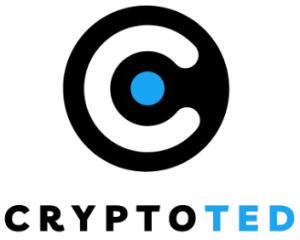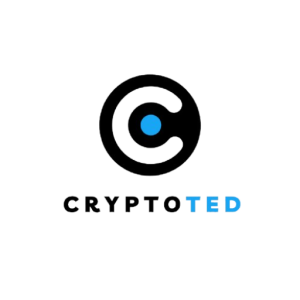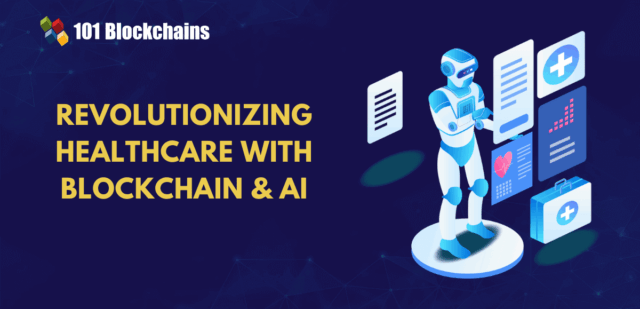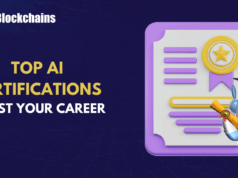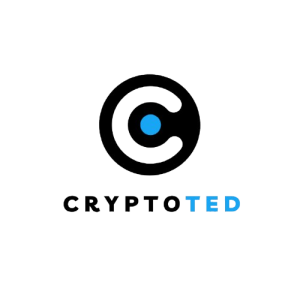Advanced technologies such as AI or Artificial Intelligence and blockchain are rapidly reshaping the healthcare as well as bioinformatics landscape. Blockchain and AI in healthcare have become a crucial part in solving some major challenges, like diagnostic accuracy, data security, personalized healthcare, and interoperability.
Besides, they are also revolutionizing the process of drug development. This combination marks the beginning of a truly digital health revolution, establishing a system that is highly intelligent, secure, and transparent.
In this blog, we will discuss more about this in detail and understand how will blockchain and AI affect healthcare? Let’s explore.
Blockchain and AI in Healthcare: Understanding the Synergy
Blockchain technology, which is a decentralized ledger, brings security, immutability, and transparency to healthcare operations and data. On the other hand, AI can help in extracting and analyzing patterns, insights, and predicting outcomes from huge datasets.
AI and blockchain in healthcare set a foundation to create a modern healthcare system developed on automation, trust, and intelligence. Together, these technologies can solve some key challenges:
- Trustworthy and real-time drug histories and patient data.
- Secure exchange for sensitive data without worrying about data leaks.
- Data auditability and integrity for insurance claims, research, and clinical trials.
- Autonomous decision-making for healthcare, management, treatment, and diagnostics.
Blockchain and AI in healthcare are empowering a safer and smarter healthcare system, creating opportunities for medical innovation and patient care.
From patients to producers—discover Health 3.0 with tokens, NFTs, and DAOs in the Blockchain in Healthcare Masterclass.
Blockchain and AI in Bioinformatics
Bioinformatics is a process of analyzing biological data, such as metabolomics, proteomics, and genomics. It is privacy-sensitive as well as complex. Traditional analysis methods take a lot of time. However, blockchain and AI in bioinformatics offer traceable and decentralized frameworks to manage and share data sets, ensuring integrity in biological research.
Blockchain records every transaction securely, including access, consent, sharing, and analysis, through cryptographic protection. Artificial intelligence projects disease pathways, extracts patterns, and builds predictive models for clinical data sets. This can foster reproducibility and collaborative research in various complex medical studies.
Furthermore, smart contracts and zero-knowledge proofs support secure data sharing in research between involved parties. All these things empower startups and scientists to innovate quickly and confidently, while keeping sensitive data secure.
Remarkable AI Blockchain Projects in Healthcare
A growing ecosystem of blockchain and medical AI startups is supporting this transformation. Some popular AI blockchain projects and startups to consider are:
Popular AI Blockchain Projects
| Platform/Project | Description |
|---|---|
| Nebula Genomics | Well-known blockchain-powered genomic data platform with AI-driven insights. |
| Medicalchain | Offers blockchain-enabled electronic medical records. |
| ClinTex CTi | Supports pharma clinical trials through smart contracts and prediction analytics. |
| MediBloc | Offers blockchain-enabled and AI-powered electronic health records. |
| Aimedis AIMX | Comprehensive healthcare ecosystem powered by AI, medical data, Web3 technologies, and the metaverse. |
All these platforms play a major role in creating new business models, focusing on decentralized governance, peer-to-peer transactions, and crypto tokens. The introduction of blockchain and AI promises highly scalable and transparent digital solutions for the most common healthcare challenges.
Unlock your potential in Artificial Intelligence with the Certified AI Professional (CAIP)™ Certification. Elevate your career with expert-led training and gain the skills needed to thrive in today’s AI-driven world.
How Will Blockchain and AI Affect Healthcare?
The combined effect of blockchain and AI is redefining healthcare, setting a solid foundation for a more transparent and smarter medical ecosystem. These technologies have multiple applications in this sector and address long-standing pain points.
-
Security, Ownership, and Data Privacy
Healthcare systems are dealing with various issues like interoperability issues, data breaches, and fragmented data. Blockchain helps create tamper-proof and secure electronic health records. Patients get complete control of their personal and medical data. They can use smart contracts to grant consent to researchers and service providers.
Artificial intelligence, on the other hand, accelerates data analysis, enhancing decision-making for doctors while maintaining privacy.
-
Predictive Analytics and Personalized Medicine
AI-powered tools can easily process massive amounts of data to identify patterns, customize treatment, and predict possible risk, lowering chronic health issue burdens and emergency room visits.
Blockchain-powered data aggregation makes sure that those models are developed on diverse, robust, and verified sources, reducing error and bias. Together, they facilitate individualized medicine and accurate health analytics.
-
Administrative Efficiency
With the help of blockchain, it is possible to remove those centralized and expensive intermediaries while simplifying verification and compliance processes. Artificial intelligence can automate various administrative tasks such as patient triage, insurance processing, resource allotment, and more.
This level of administrative efficiency can save hospitals billions of dollars every year, allowing them to use more resources in patient care.
-
An Efficient Research Engine
AI systems combined with blockchain can collect data from millions of sources securely. They can easily access and process datasets without any errors. This, in turn, accelerates the process of rare disease discovery. Furthermore, it helps ensure that new medical treatments are created and deployed properly.
Blockchain facilitates transparent tracking, and this helps combat fraudulent claims and counterfeit drugs in global supply chains. Artificial intelligence analyzes market signals and supply data to forecast shortages and makes sure that genuine pharmaceutical products reach patients.
Some projects, such as FarmaTrust and MediLedger, are demonstrating the impact by varying drug expiry date, origin, and can even process compliance reports automatically.
Enroll now in the Blockchain Scalability and Interoperability Mastery Course to learn the skills needed to develop faster, scalable, robust, and interoperable dApps.
Major Challenges and The Future
While the blockchain and AI in healthcare promise a decentralized healthcare system, several challenges need to be addressed properly in order to unlock its maximum potential. Some key challenges that may slow down the adoption rate are:
- Patient consent management and data privacy laws in a borderless healthcare ecosystem.
- Scalability of blockchain networks for properly processing huge clinical and multi-omics datasets.
- Integration of blockchain and AI in healthcare systems requires standardized APIs, data formats, and ontologies.
- Some blockchain protocols consume a lot of energy, raising concerns about sustainability.
- Navigating multiple health data laws like GDPR, HIPAA, or the DPDP Act while using decentralized AI models can be challenging.
- Some modern healthcare systems may not be compatible with legacy systems.
Addressing such challenges requires sophisticated governance frameworks, cross-sector collaboration, and more innovations.
Future of Bioinformatics and Healthcare
- AI models trained on decentralized datasets would be able to support multi-institutional medical research and facilitate privacy-preserving, accurate diagnostics.
- More AI blockchain projects will come up, driving innovation in remote diagnostics, wearable tech, and telemedicine.
- Programmable blockchain logic will play a crucial role in automating insurance workflows and patient consents.
- AI models are expected to offer proactive care by analyzing data from biosensors, smartwatches, and other wearable or IoT devices.
- The industry will witness the wide adoption of consensus mechanisms to support sustainability in medical AI crypto ecosystems.
As these technologies evolve, they will reshape the healthcare landscape, offering people a more inclusive, resilient, intelligent, and personalized healthcare ecosystem.
A New Era of Secure and Intelligent Medicine
Well, the future of healthcare and medicine is programmable and also decentralized. Blockchain and AI in healthcare clearly represent a significant shift from an expensive, reactive, and fragmented system to an economical, predictive, and transparent system. In the future, AI and blockchain in healthcare would expand from pilot programs to government-supported and enterprise-grade platforms.
These technologies are opening doors to an era of trusted data sharing, decentralized medicine, and rapid discovery. However, to ensure a smooth and quick transformation, it is crucial for entrepreneurs, healthcare experts, policymakers, and researchers to collaborate and address the present challenges. To explore these opportunities and innovations in depth, consider joining the Blockchain in Healthcare Masterclass.
